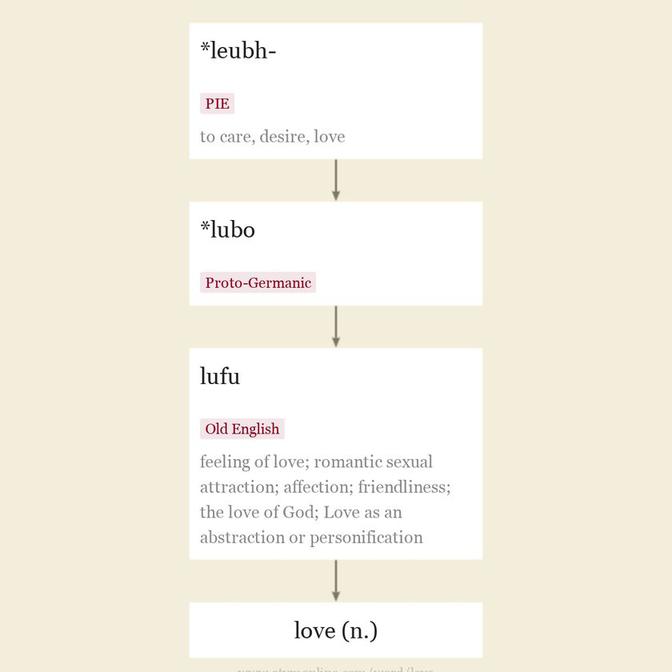love-making n.
"
Entries linking to love-making

Old English lufu "
The weakened sense "
To fall in love is attested from early 15c.; to be in love with (someone) is from c. 1500. To make love is from 1570s in the sense "
"Even now," she thought, "almost no one remembers Esteban and Pepita but myself. Camilla alone remembers her Uncle Pio and her son; this woman, her mother. But soon we shall die and all memory of those five will have left the earth, and we ourselves shall be loved for a while and forgotten. But the love will have been enough; all those impulses of love return the love that made them. Even memory is not necessary for love. There is a land of the living and a land of the dead and the bridge is love, the only survival, the only meaning." [Thornton Wilder, "Bridge of San Luis Rey," 1927]
Old English macian "
Meaning "
Read the valuable suggestions in Dr. C.V. Mosby's book — be prepared to surmount obstacles before you encounter them — equipped with the power to "make the grade" in life's climb. [advertisement for "Making the Grade," December 1916]
But the phrase also was in use in a schoolwork context at the time.
To make friends is from late 14c.; to make good "
Make time "
updated on October 10, 2017